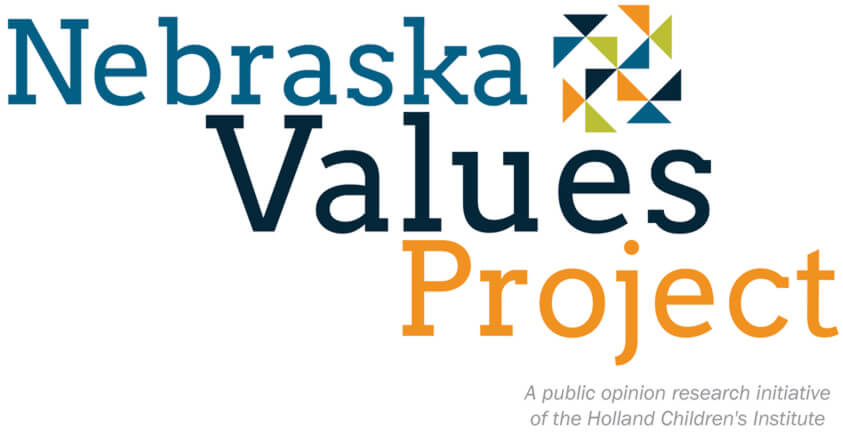The Nebraska Values Project is a public opinion research initiative of the Holland Children’s Institute. In partnership with Myers Research & Strategic Services, a live telephone survey was conducted in early November 2017 to measure public opinion among Nebraska voters on public policy issues and demographic research affecting children and working families across Nebraska.

“The first public results of our Nebraska Values Project indicate that Nebraskans across the ideological spectrum support greater investments in education and healthcare,” said Andy Holland, President of the Holland Children’s Institute. “Notably, Nebraskans associate building a stronger middle class with specific ideas and proposals like paid family leave and affordable childcare.”
Nebraskans Support Investments in Education and Health Care:
Highlights from Installment I:
- The Children’s Health Insurance Program or CHIP is met with broad favorability as is Medicaid:
- Registered Republicans give CHIP exceptionally strong reviews (66 degrees; 51 percent warm to 9 percent cool).
- Registered Republicans give Medicaid positive ratings as well (57 degrees; 48 percent warm to 23 percent cool).
- 75% of Nebraskans polled favor ensuring that Medicaid covers all uninsured Nebraska children and make it easier for families to enroll them.
- 75% of Nebraskans polled favor expanding access to affordable childcare for young children.
- 71% of Nebraskans polled favor providing paid family leave for employees to cover up to 12 weeks of leave from their jobs to deal with a serious illness, to care for a sick relative, or to care for a new child.
- 71% of Nebraskans polled favor expanding voluntary full-day pre-kindergarten programs throughout the state.
- A majority of all partisans (registered Democrats, registered Republicans and those not registered with either major party) believe afterschool programs should have a portion of the state budget directed to them.
The margin of error associated with these data at a 95 percent confidence level is +/-4.0 percent.
Shareable graphics are also available on our Twitter page @HCInstitute